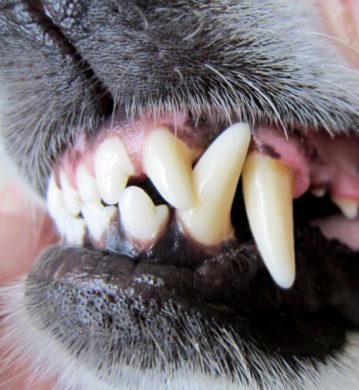What to Do About Your Dog’s Dental Problems

Many pet owners notice their pet’s teeth have lots of tartar and plaque, and their gums are red and inflamed. They also notice their dogs have bad breath. If that sounds like your dog, then you’re probably wondering one thing: what should you do if your dog has dental problems?
Some people brush their pet’s teeth, some people get their teeth professionally cleaned (which also generally means they have to be put under, which can be dangerous and expensive), some buy them dental chews, and some just ignore the issue until it gets so bad the dog needs serious dental attention. While some of these strategies can help, they often don’t get to the root of what’s really going on.
Here’s the thing: While poor oral health is not always because of a poor diet, oftentimes it is.
Contrary to popular belief, processed pet food tends to contribute to plaque and tartar because it gets stuck on the teeth or in the gum line. A species-appropriate raw diet, however, scrapes the teeth clean, and it doesn’t leave any nasty residue on the teeth. Many dogs that are fed a species-appropriate raw diet have sparkling white teeth, healthy gums, good breath, and healthy jaws.
Unfortunately, poor oral health is another example of what we now consider normal. The good news is that, usually, your dog’s dental problems can be easily addressed by fixing their diet (learn how here).
You can click the buttons below to go back to the Pet Illness articles, or you can venture back to our other Pet articles, DIY Pet recipes or the Pet supplies and products we love!
Disclaimer: All information contained herein is intended for educational purposes only. It is not provided to diagnose, prevent, or treat any disease, illness, or injured condition for any human or animal, and Mother Nature’s Truths, as well as the author(s), contributor(s), publishers, and owners accept no responsibility for such use. Anyone suffering from any disease, illness, or injury, or who has an animal suffering from such, should consult with their physician or veterinarian. The statements herein have not been evaluated by the Food and Drug Administration.